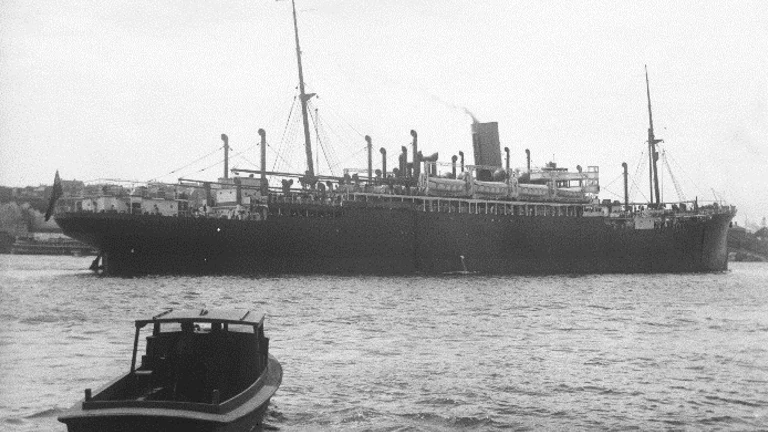Australia and Indonesia’s Struggle for Independence: The Black Armada
Written by Leo Barry – AIYA National Blog Editor
Indonesian translation by Wes Trianugeraha – AIYA National Translation Team
Read the Indonesian version here.
The Republic of Indonesia only gained independence 79 years ago, successfully ending some 300 years of Dutch rule. Today, Indonesia’s National Revolution (1945-1949) remains a cornerstone of Indonesian nationalist identity, its symbols, rhetoric, and aesthetics, all still highly relevant in modern Indonesia. However Indonesia’s struggle for independence was not simply a national affair. It galvanised support from all around the world and set the stage for Australia’s first official relations with its neighbour to the north. The “beginning” to the Australia-Indonesia story contains a piece of under-appreciated history that sheds new light on the foundations of an almost century old relationship.
Australia is now remembered as being one of the first Western nations to support Indonesia’s bid for independence. In 1947, after the Dutch launched the ‘First Police Action’ against the young Indonesian Republic violating previous diplomatic agreements, Australia referred the conflict to the UN, boldly naming the Dutch as the instigators of the violence. Australia would subsequently be nominated by the Indonesian Republicans to broker a ceasefire with the Dutch, and when Indonesia eventually became independent, Australia would be one of the first to recognise the new nation.
What is perhaps less well known is the history of Australian trade unions and their successful struggle towards supporting the Indonesian independence movement. This pushed public opinion and policy against the actions of the Dutch in their former colony. From the beginning of the war to its end, an alliance of Australian maritime trade unions would block Dutch shipments of arms and munitions crucial to their war effort from Australian ports.
Australia’s ports were staffed by many international workers, among them were Indonesian seamen, many of whom developed a strong bond with Australian workers over mutual working class interests. In Sydney, a dispute over pay had seen the Indonesian seaman backed by the Australian Seamen’s Union, and in 1942, Indonesian political prisoners brought to Sydney harbour by Dutch ships fleeing the Japanese were released after protests from workers.
The crux of this fascinating relationship took place between 1945-1949, wherein almost 600 Dutch ships were blocked from using Australian ports by an alliance of Australian maritime trade unions and foreign dockworkers. From September 1945, workers refused to work on Dutch vessels carrying weapons, munitions, or any other supplies deemed important to the Dutch war effort. While the strikes originally started in Sydney, they soon spread to Melbourne and Brisbane, dealing a significant blow to the Netherland’s war effort.
This little-known facet of Australia’s relationship with Indonesia is remarkably captured in the 1945 documentary film ‘Indonesia Calling,’ directed by the Dutch filmmaker Joris Ivens produced in conjunction with the Waterside Workers Federation. The documentary plays as a slick piece of pro-union propaganda, with Australian dock workers pictured in black and white listening to their Indonesian colleagues cry ‘Indonesia Merdeka!’ (Free Indonesia) against the backdrop of Sydney Harbour.
The united front presented by Australian maritime trade unions and the effectiveness of their campaign against Dutch shipping played an important role in supporting a newly free Indonesia. According to some observers, the campaign would also galvanise public support for Indonesians and push Ben Chiffley’s Labour government into opposing the Netherlands on an international stage. If this unconventional beginning to the Australia-Indonesia relationship has anything to teach us; it is that meaningful change and cooperation between the two countries is not exclusively affected by governments. Relationships between people, communities, and those sharing an equal mission for justice should always underpin Australia’s interactions with its neighbours.

